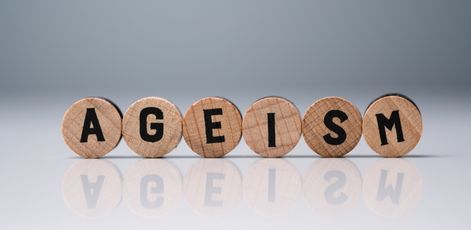What Is Ageism and Why Does It Affect Everyone?

What Is Ageism?
Ageism refers to the stereotypes (how we think), prejudice (how we feel), and discrimination (how we act) towards others or oneself based on age. It affects attitudes, relationships, and behaviors across all stages of life.
Who Does Ageism Affect?
Ageism affects everyone. Children as young as four begin to recognize and internalize cultural age stereotypes. These stereotypes shape how they perceive others and themselves, leading to self-directed ageism at any age. Ageism often intersects with other forms of discrimination, such as those related to sex, race, or disability, worsening inequality and exclusion.
Where Is Ageism Seen?
Ageism is everywhere — in our institutions, workplaces, relationships, and even self-perceptions.
Examples include:
– Policies that ration healthcare based on age.
– Practices that limit young people’s decision-making opportunities.
– Patronizing behavior toward older or younger individuals.
– Self-limiting beliefs that arise from internalized stereotypes about what people can or cannot do at a certain age.
Is Ageism Really a Problem?
Yes. Half of the world’s population is ageist toward older people, and in Europe, younger people report experiencing more age discrimination than any other age group.
Ageism can:
– Damage self-esteem and erode solidarity between generations.
– Limit contributions from both young and older people.
– Harm health and longevity, causing poorer physical and mental health, slower recovery from illness, and earlier death (by an average of 7.5 years).
– Increase risky behaviors like poor diet, smoking, and excessive drinking.
In the United States, ageism costs approximately US$ 63 billion annually — one in every seven healthcare dollars for the eight most expensive medical conditions.
How Can We Combat Ageism?
Three proven strategies can reduce or eliminate ageism:
1. Policy and Law – Implement regulations that address age-based discrimination and protect human rights.
2. Educational Activities – Promote awareness, empathy, and accurate information about all age groups to challenge stereotypes.
3. Intergenerational Interventions – Create opportunities for interaction between generations, reducing prejudice and fostering understanding.
Final Thoughts
Ageism is a global issue that harms individuals, communities, and economies. By promoting equality, inclusion, and respect across all ages, we can build societies that value people of every generation.







